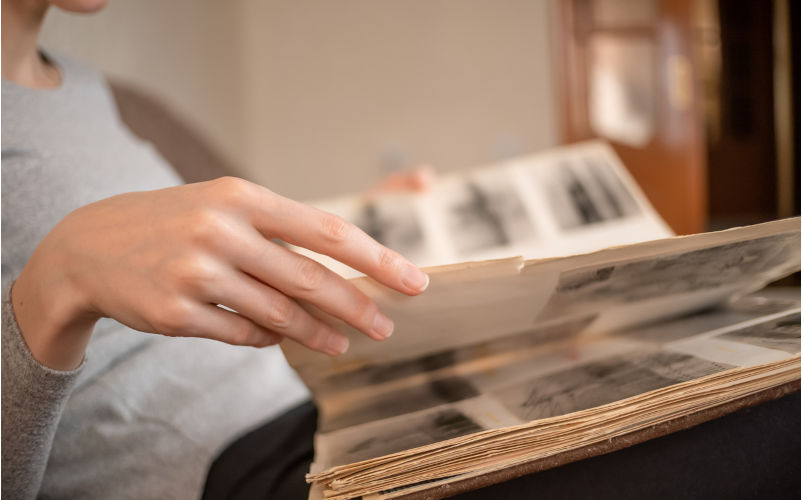Scott Morrison wants his family photo album back. It was mistakenly sent to an op-shop where it was bought by a customer who soon realised they’d acquired a volume of glimpses of our former PM’s life in the 1990s. Holidays in London, living it up at the Sheraton, taking a dip in a lake and recovering after a hard New Year’s Eve — these images had meaning for Morrison it seems.
Having recently cleaned out my parents’ house after the death of my mother, I was moved by hundreds of emotionally resonant family snaps I found during the process. So perhaps I should have more sympathy for Morrison’s loss.
Yet I can’t help feeling that he had it coming to him. After all this is the man who, when Treasurer, presided over the sale of the place where Australia’s family photo album was made and maintained until 2011.
Film Australia, a government-owned company which produced programs documenting the nation’s life, was merged with other Commonwealth film agencies in 2008. A few years later its library of films and footage — spanning the years 1913 to 2008 — was transferred to the National Film and Sound Archive (NSFA). Then, in 2015, Scott Morrison announced that $47.3 million spent to entice Hollywood blockbuster productions in the Thor series and the Prometheus sequel Alien: Covenant to Australia would largely be funded with $35 million earned from the sale of the Film Australia studio complex at Lindfield on Sydney’s north shore.
Not a cent of the proceeds went to assist the NFSA to preserve and make available the irreplaceable national “photo album” it was now required to look after. Nor did any of the money go toward ensuring that the album would continue to be replenished with new works exploring our national life. Instead, our national production house was traded solely to subsidise American franchise movies. Who needs Australian pictures when we can have blockbusters with Yankee accents?
Such carelessness with our memories, our shared history, was to my mind shocking and spoke volumes about our then Treasurer’s values. That’s why I wasn’t much surprised when I read last week that Morrison’s album was accidentally sent to the op-shop.
Our National Film and Sound Archive is hardly an op-shop of course. But it has suffered from underfunding for many years now, rendering the Film Australia collection it holds largely unknown and often difficult and expensive to access.
So much so that publicity for the forthcoming SBS series Australia – an unofficial history, based on material filmed by Film Australia and celebrated filmmakers who once worked there, describes the Film Australia collection as “a forgotten vault of government films”.
I’m looking forward to the series, which focuses on the 1970s, and I applaud its producers for their initiative. I probably don’t need to tell them that there are more riches waiting in that “forgotten vault”, stories from other decades showing the diversity (and sometimes the lack of it) of the Australian experience.
But it’s worth pointing out to new generations of filmmakers assembling next week in Melbourne at the Australian International Documentary Conference that we once had an institution with responsibility for creating, distributing and preserving our national album of documentary pictures. It was supported by Australians for more than 60 years, until a careless Treasurer and his colleagues mistakenly gave it away.
Australia: an unofficial history screens on SBS from March 5

Sharon Connolly
Sharon Connolly is a writer and filmmaker. She was chief executive and managing director of Film Australia Ltd from 1997 to 2004.
